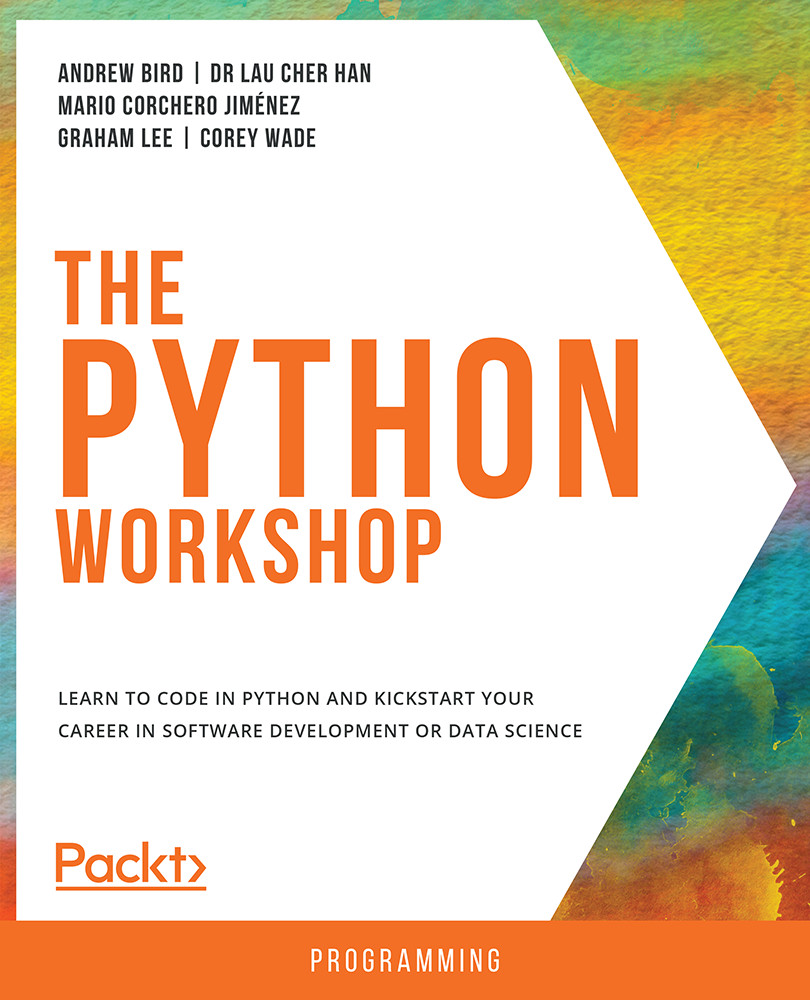-
Book Overview & Buying

-
Table Of Contents

The Python Workshop
By :

The Python Workshop
By:
Overview of this book
 Free Chapter
Free Chapter
 Sign In
Start Free Trial
Sign In
Start Free Trial


 Free Chapter
Free Chapter
Software development goes beyond writing code. In previous Chapter 7, Becoming Pythonic you were introduced to the idea of being Pythonic. When you write software as professionals, we expect the code to be up to a certain standard and to be able to manage and distribute that code in a way that can be easily consumed by other developers.
In this chapter, you will go through the various concepts and tools that allow you to elevate the level of your source code and applications. You will examine Python tools that every Python developer uses for testing, writing documentation, packaging their code, and version control, as well as learning about techniques that allow us to debug issues that occur in existing code. Additionally, you will write tests to validate our assumptions and implementations of our code. These are all concepts and tools that are key to any successful developer in any company, as they allow developers to develop and collaborate effectively. Finally, you...

Change the font size
Change margin width
Change background colour